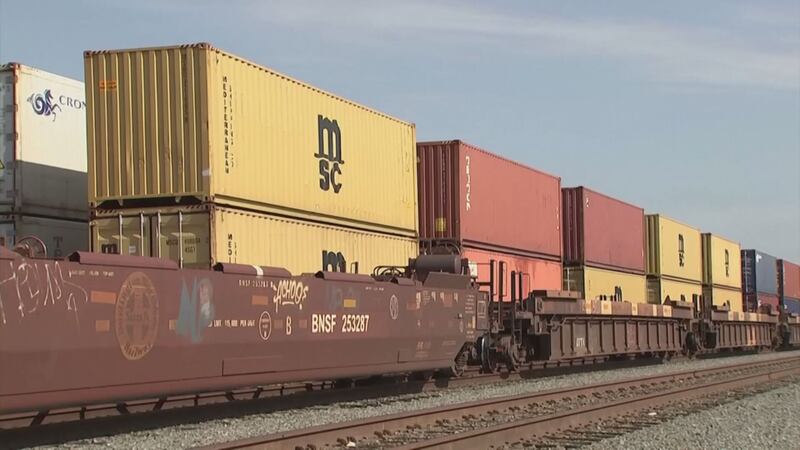SEATTLE — After more than 20 hours of nonstop negotiations, the Biden administration announced early Thursday that a tentative deal has been reached between railroad companies and union workers, averting a strike.
If workers went on strike, many services in Seattle, such as Amtrak, would have been affected.
Amtrak said the negotiations don’t involve the company or its workforce but do affect train travel because the train tracks used by Amtrak in Washington and Oregon are mainly owned by BNSF Railway and Union Pacific. Amtrak’s trains cannot operate without the BNSF and Union Pacific dispatchers.
Amtrak had already suspended the Empire Builder, which travels to Chicago, and the Coast Starlight, which travels to Los Angeles. The company said the suspensions were necessary to make sure trains can reach their terminals before freight service interruption in case a resolution was not reached. The company is now working to restore service and contact customers.
“Amtrak is working to quickly restore canceled trains and reaching out directly to impacted customers to accommodate on first available departures,” the company said on it’s website. Get the latest updates on Amtrak.com/alerts.
Because Sound Transit’s Sounder trains are operated and unionized by BNSF, the strike would have affected those trains as well. In the event of a national rail strike, Sound Transit said its commuter rail service between Everett, Lakewood and Seattle would have been canceled starting Friday until workers returned.
There are 12 unions representing 115,000 railroad workers. Their concerns include unpredictable work schedules and strict attendance policies, which makes it difficult to take any time off.
A third of railroad workers nationwide have been cut, leaving too much work for those still on the job.
“The conductors and the engineers that actually drive or run these trains are on call 24 hours a day, seven days a week, 52 weeks a year, every year. So, I don’t know anyone who wants to be on call 24/7 for years on end,” said Arthur Wheaton, director of Cornell’s School of Industrial and Labor Relations.
Halting trains across the U.S. could have cost the country’s economy more than $2 billion a day and impacted everything from fuel to food.
“Ultimately, the consumer ends up bearing the costs of those disruptions. So, we’ll continue to see higher prices, shortages and it could have a huge impact on inflation that’s already been high,” said University of Southern California associate professor of clinical data sciences and operations, Nick Vyas.
If an agreement wasn’t reached by 9 p.m. on Thursday, railroad workers would have gone on strike on Friday.
The tentative agreement will now go to union members for a vote. There will be a post-vote cooling off period to ensure there isn’t an immediate rail shutdown if a vote doesn’t succeed.
More news from KIRO 7
- ‘Eco blocks’ on Seattle streets are thwarting more than homeless encampments
- Man, dog found dead in a truck outside of a PetSmart in Indiana
- Man accused of murdering his wife, dies after walking in front of a semi in Wisconsin
- Do you have an investigative story tip? Send us an email at investigate@kiro7.com
©2022 Cox Media Group








